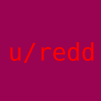- Are you using Flatpaks?
- Are you trusting Flathub?
- Do you bother about the sandboxing and security?

I expect the Flatpak sandbox to protect my ~/ from getting cluttered by applications, not to protect me from any actually malicious software. The post’s premise seems misguided.

YES. I don’t understand this delusion people keep perpetuating. Flatpak has a MILD form of container sandboxing. For a real security sandbox we have Firejails or Bubble wrap.
Flatpak is, at it’s core, a software development and distribution packaging format. NOT a security implementation.

[This comment has been deleted by an automated system]

I always check my flatpak settings post install before running the app and adjust permissions according to need. I mean it does offer more security to me since it’s user installed, I can granularly update permissions and control more or less where and what is can touch.
Alternatives to this are SELinux,AppArmour and firejails which are slightly more inconvenient to use.
To me that is mostly secure,or secure enough.
Well and then there’s some immutable distros which might help overall.
Edit: paragraphs

[This comment has been deleted by an automated system]

Yeah, Flatpak was never meant to be a security mechanism. It is a convenient way to add security to userland though.

In addition to own new code, bundled copies of libraries in packages introduces net new attack surface which isn’t patched via the regular distribution security patch process. The image decoding lib that allows remote code execution now exists in flatpaks independently from the one in /lib. Every flatpak vendor that contains it has to build and ship their own patched version of it. This is even more valid for any other libraries flatpaks include that don’t exist on the system. The most widely used Linux OSes come with security patching processes, expectations and sometimes guarantees. This new attack surface breaks those and the solution is security sandboxing. This approach has been proven in mobile app packaging and distribution systems. Android is a great example where apps are not trusted by default and vulnerable ones rarely cause collateral damage on otherwise up-to-date Android systems. This is an objective problem with the out-of-band distribution model allowed by flatpak and snap or any similar system, whether you care about it or not personally. It’s a well understood tradeoff in software development. It has to be addressed as adoption grows or we risk reducing Linux security to the levels of Windows where apps regularly bundle dependencies with no sandboxing whatsoever.

Every Flatpak vendor
So who’s that? Flathub and Fedora, the latter of who automate the Flatpak builds from distro packages anyway.
If you’re using a smaller distro which is not backed by a huge security team then this is probably an advantage of using Flatpak, not a negative.
Can the Fedora Flatpaks be browsed and downloaded for other distros?

Yes. All Flatpak apps can be used on any distro.
I’m using the Fedora Flatpak Firefox on Debian, because Fedora’s Flatpak runtime supports Kerberos authentication, the Flathub runtime doesn’t.

Yes, I’m using flatpaks.
Yes, I’m trusting flathub. LOL about people repackaging applications. Wait until they find out the Linux distro they use is a collection of software repackaged by 3rd parties. 😂
Userland hasn’t had any concept of security, so it’s nice people are trying to fix it.

I have a handful of applications from Flathub I trust, but that’s it.
I don’t see Flatpak as a security mechanism and I don’t treat it like one.

This is generally good advice. Would you run the program without a sandbox? No? Then you probably shouldn’t run it inside a sandbox either.
You can never be sure that the program isn’t using a flaw in the sandbox to break out or is just piggybacking onto a whitelisted action that is required for the program’s basic functionality.And if some program requires r/w for your entire home directory and network access then you might as well not use a sandbox in the first place because it can already do everything useful that it needs to do.

There is a subset of only verified apps, if you want to be secure. But then you lack trustworthy unofficial apps like VLC.
flatpak remote-delete flathub ; flatpak remote-add --subset=verified flathub https://dl.flathub.org/repo/flathub.flatpakrepoAlso until every app uses Portals, and until we have a share portal, most apps are basically unrestricted if you compare it to Android.

- Yes, it’s more convenient for some things
- Enough to use it
- Yes and no

Linux security to me has always been, don’t download random packages you don’t trust.

And this is why I’ve never taken much of Linuxs user base seriously when they talk about security. Hilariously bad defense strategy.
Even if you have trust. There can be security vulnerabilites in apps we are using. Flatpak seems to not really help in any way.

I’m mostly using Flatpaks on Tumbleweed, I only use the package manager if I can’t find a Flatpak version. Reason for that is that with Flatpak I can precisely know what I manually installed, as Tumbleweed lacks a proper easy way of getting a list of user installed packages
Nope, I’ll never use flatpak, appImage, snap, things like this.
If there’s no .deb to install, I try to compile it myself.

Okey, let me start the discussion.
What’s the point of sandboxing or permissions on environment for one user?

It means you can run apps without trusting their developer will full access to your computer and your files.
Just like on mobile, you only allow apps to access what you know they need. Nothing more.

Okey, so why we run apps without trusing developers in the first place? Or why do we even need the trust?
(It’s not that I think sandboxing is not useful sometimes, I just want to see if we get somewhere)
Think about service providers (government, banking, messaging, streaming, gaming). To participate in life we might depend on some of their services but don’t fully trust these parties. Flatpak is not secure/sandboxed enough to run untrusted apps. Meanwhile on Android the situation looks much better.

Tried couple of times and it didn’t work. I had more luck with AppImage. Don’t use it, don’t want it.

The Flatpak experience on Ubuntu is piss poor on purpose fwiw, Canonical kneecapped Flatpak in favour of Snaps. Try it on Fedora!
AppImages offer zero protection or containerization, it’s just a distribution format.

I HATE org.shit.fuck.



